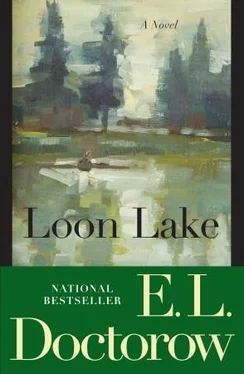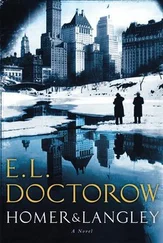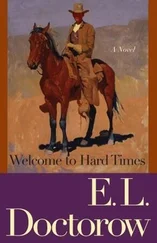But a while later two more diggers came along flushed from their dens, and soon there were a half-dozen of us standing shirtless in the woods swinging our picks and shovels at this mountainous stone.
It was interesting to me how the impulse of the man transformed into the hard work of the rest of us. By our digging we suggested something really important was going on, someone passing by would look at us and think it was serious — we ourselves were proof of the seriousness of the thing.
I had expected not to like F. W. Bennett. But he was insane. How could I resist that? There was this manic energy of his, a mad light in his eye. He was free! That was what free men were like, they shone their freedom over everyone.
I didn’t want to think what he did with Clara. I could not dream that she could matter to him in any way at all that I would recognize. I swung my pick. All the intelligence I had of him, from his house and his lands and his train and his resident poets, had not prepared me for the impersonal force of him, the frightening freedom of him.
In the late afternoon we knocked off work, having unearthed the boulder to its southern polar slope. It sat now in an enormous trench at the bottom of which were packed several other stones. It looked as if it weighed several tons. On the way back we stopped in front of the main house to report these findings. Bennett stood on his front porch. He was very pleased. “We’ll take it as far down as it goes, boys,” he said. “And tomorrow we’ll look for markings. I want to see if it has markings.”
Apparently as he gazed at these dirty and sweat-stained workmen he saw in the face of one something that might have been disbelief.
“You, Joe,” he said to me, “you think it’s just a rock, don’t you?”
I was so stunned that he knew my name I didn’t know what to say.
“Come inside. I want you to see something.” He turned and went in the house.
Someone reached over and took the pick from my shoulder. I heard a snicker. I followed F. W. Bennett into his front hall and went past the stairway of halved logs to the sunken living room.
There was a shimmering light on the ceiling, a reflection of the lake. But the floor was in shadow. In one corner, on a table, was a book with line drawings of primitive stone monuments: in all cases one large boulder rested on three or four smaller ones.
“You see?” he said. “I’m not as crazy as you think. They put down these megaliths, or dolmens, for their fallen chiefs.”
He strode around the room lecturing me on the burial practices of ancient Indian tribes of New England. He compared them to the ancient burial practices of the Western desert tribes. Indoors he seemed older. He was vigorous and moved constantly but his voice was somewhat hoarse, it suggested age.
I stood in my filthy dark greens wondering how I was going to get out of there.
A maid came in holding a phone on a long cord. She brought it to his side and held it for him on her palm while he picked up the receiver. “Yes?” He continued to move about, and the maid in her light green uniform followed him dutifully where he went, dealing with the cord so that it wouldn’t snag on the furniture. He was getting information. He asked short questions — How many? What time? — and listened to lengthy answers. I looked out the bay wall of windows. The late afternoon shadows made the lake a brilliant dark blue water.
On the terrace a woman was arranging flowers in a vase. I realized I was looking at Lucinda Bailey Bennett, the aviatrix. The small shock of seeing someone famous.
“You don’t know how to work cameras, by any chance?”
The phone was gone. Bennett was talking to me.
“I’ve got all this equipment here but I can’t get the hang of it myself,” he said. “I want to take proper pictures of the excavation and send them out to see if I’m right.”
“I don’t know anything about cameras,” I said.
“I thought you were smart… Well,” he said, “I wanted to take a look at you, anyway, to see if you belong with me on a permanent basis. What’s your opinion?”
“You mean a job?” I said.
“That’s what I mean. You think you ought to be hired?”
I swallowed. “No,” I said.
“No?” He seemed amused.
“I couldn’t live here,” I said. “It’s not for me.”
He laughed out loud. “You seemed to have adapted well enough. From what I understand you’ve made the place your own.”
Something outside had caught his eye. He stepped onto the terrace, closing the glass doors behind him, and stood calling down the hill to somebody at the boathouse.
My muscles were tight and my hands clenched. I tried to loosen up.
Mrs. Bennett glanced through the window to where I was and said something to her husband. He turned to her smiling and said something back and she looked again in at me briefly, a half smile on her face. She was a very elegant, honest-looking lady, very well composed, with brown hair cut short, no make-up or anything like that, she wore a loose sweater and a longish skirt and low-heeled shoes. I thought you would not be able to tell, if you didn’t know, that this slim handsome woman with her flowers knew how to fly the hell out of airplanes.
And then it came to me he was telling her who the boy inside was. The one and only Joe of Paterson. She was so elegant I realized that what I had written in anger and pride was from another point of view pathetic. I felt betrayed, like a child who gives out his most precious secret and hears it laughed about.
I turned to leave. I thought how powerful this Bennett was if I could be made to feel so bad from just a moment or two of his attention.
“Just a minute, Joe,” he called. “I’m not finished with you.”
He went past me into the front hall and then down the corridor of the other wing of the house. He opened a door and beckoned to me.
A large room filled with books, cabinets with silver cups, photographs of Mrs. Bennett standing in front of airplanes, Mr. Bennett in a railroad engineer’s cap waving from the controls of a steam locomotive, photographs of cars and horses and presidents and governors and film stars. There were globes on stands and big dictionaries on lecterns, a ticker-tape machine under glass — a whole life of glory was in this room.
Bennett sat down behind his desk and took a manila folder out of a drawer and studied the papers in it for several minutes while I stood before him.
Without looking up, he said, “Are your injuries healed?”
“I suppose.”
“Have you been in touch with your parents?”
“My parents?”
“They signed a waiver,” he said, removing a document from the folder. “You mean you haven’t talked to them? I am not at fault for the injuries you incurred on my property. They received two hundred and fifty dollars.”
“How do you know my parents?”
“We looked through your billfold. You might have been on your way out.”
I was too stunned to speak.
“They haven’t called or written to see how you’re getting along?” He shoved a paper along the desk and I saw at the bottom the shaky signature of my father. “I’m not lying to you,” Bennett said. “By rights that’s your money.”
I shook my head.
“You don’t want to work for me. Fine. You can go home and if you’re smart you can use that money to make money. Buy something and sell it for profit. Anything, it doesn’t matter. Some of the great fortunes in this country were built from less.”
I pictured my father in the kitchen, coming to terms with this legal paper that had to be signed. Finding my school pen somewhere in a drawer and the bottle with Waterman’s ink. Testing the penpoint on the oilcloth that covered the table and then rubbing the ink off with his thumb before it dried. My mother standing at the sink, washing the dishes, disguising the moment of the waiver in their lives as one more ordinary moment.
Читать дальше











